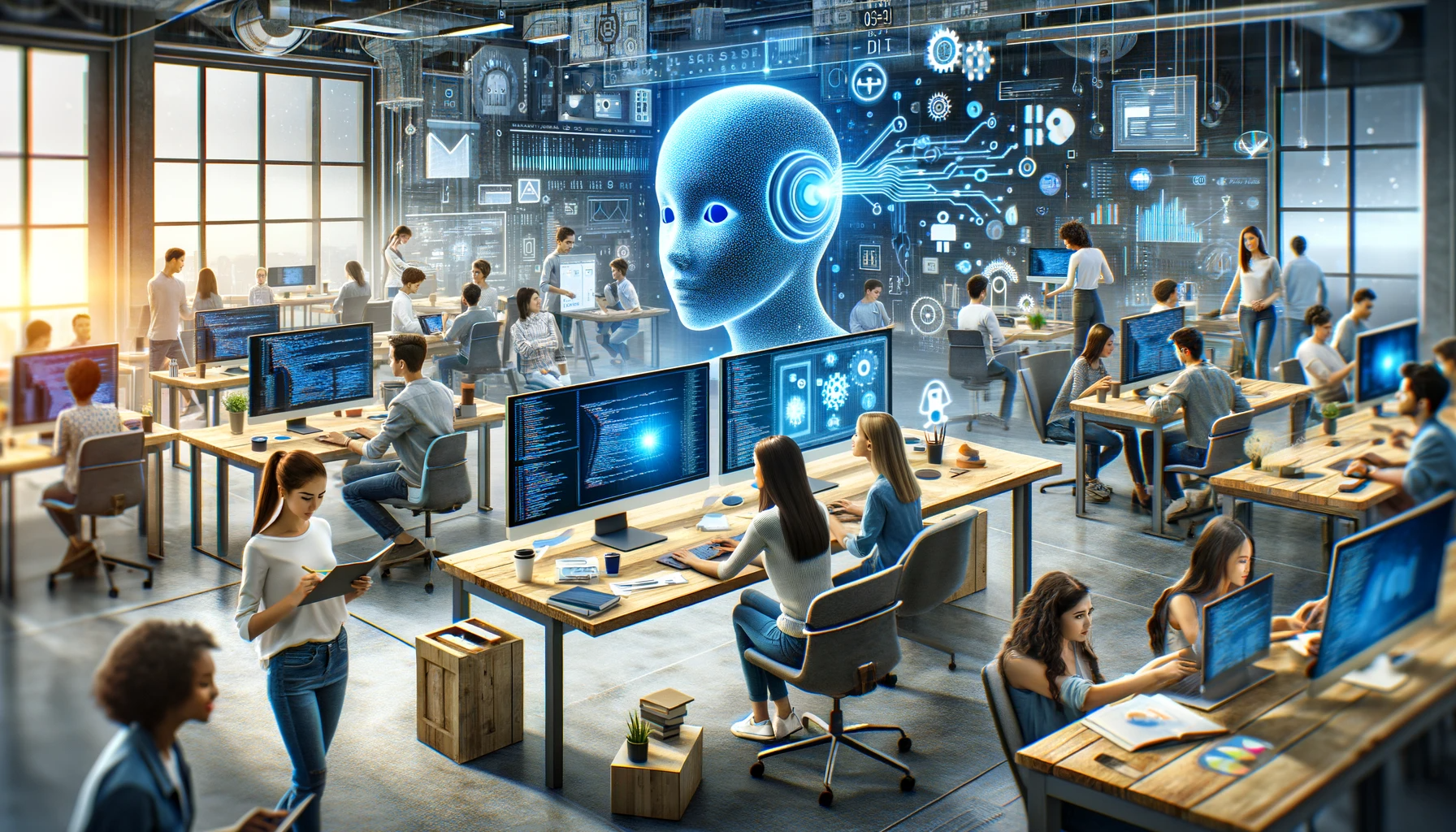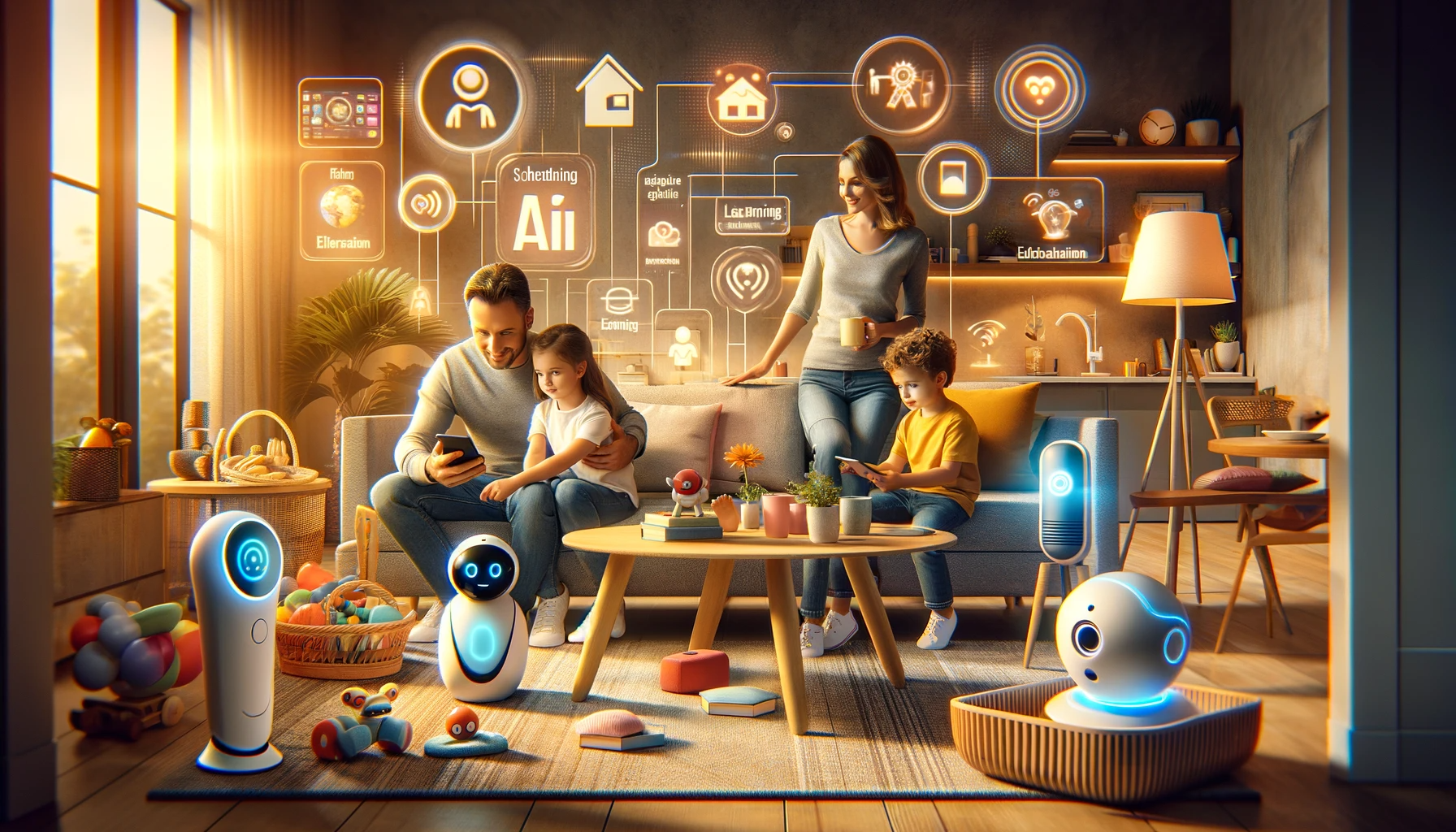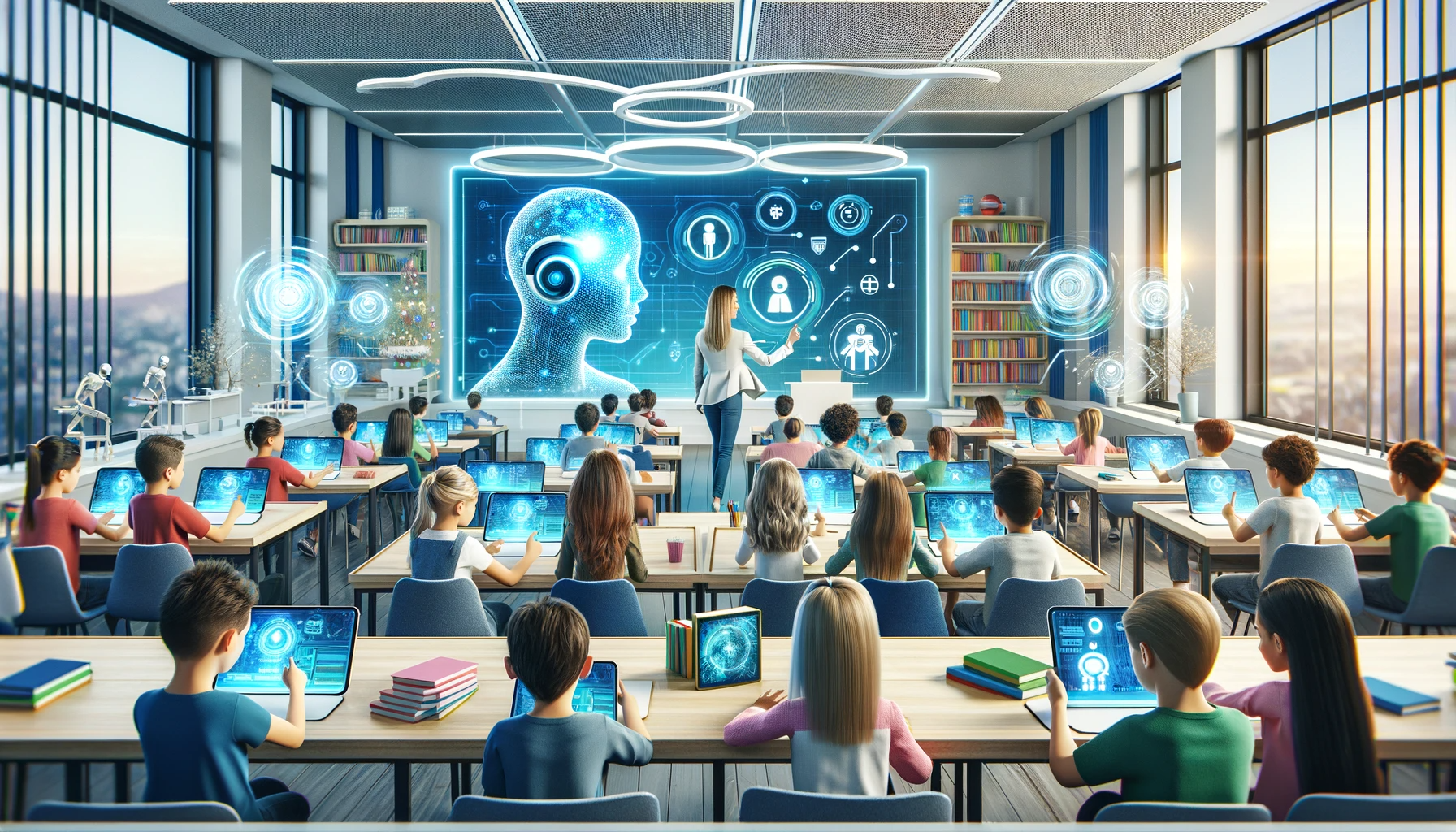In today’s rapidly evolving technological landscape, artificial intelligence (AI) has become an omnipresent force, influencing various aspects of our lives. From virtual personal assistants to smart home devices and educational apps, AI has permeated nearly every corner of society. As AI continues to advance, it raises important questions about its long-term impact on the generations growing up in this AI-rich environment. One central question looms large: How will the omnipresence of AI influence the development and social skills of future generations, particularly children?
AI technologies are no longer confined to research labs; they are part of our daily routines. Children today interact with AI-driven devices and applications from a young age. These technologies offer educational opportunities, entertainment, and novel ways of communication. However, they also introduce a host of new dynamics and challenges.
This article delves into the profound implications of growing up in a world where AI is ubiquitous. It explores how AI is reshaping childhood experiences, from cognitive development to social interactions. Moreover, it delves into the ethical considerations surrounding AI’s role in children’s lives and offers insights into how we can strike a balance between harnessing the benefits of AI and preserving the essential human aspects of development and socialization. As we navigate this AI-infused era, understanding its impact on future generations is of paramount importance.

The AI-Infused Childhood
The pervasive presence of AI in the daily lives of children is undeniable. AI-powered devices and applications have seamlessly integrated into early education and entertainment. Smart toys, interactive learning apps, and AI-driven virtual assistants have become integral parts of childhood experiences. For example, educational apps use AI algorithms to personalize learning paths, adapting to each child’s progress and abilities. Likewise, AI-driven toys offer interactive and engaging experiences, blurring the lines between play and learning.
Statistics highlight the extent of AI’s influence on childhood. A significant portion of children now grows up in households with voice-activated AI assistants like Amazon’s Alexa or Google Assistant. These virtual companions not only answer questions but also engage in playful conversations with children, further embedding AI into their daily routines. Additionally, AI-driven content recommendations on streaming platforms shape children’s entertainment choices.
Cognitive Development and AI
The potential effects of AI on children’s cognitive development are a subject of growing interest. AI has introduced innovative approaches to education, with personalized learning being a prominent example. AI algorithms analyze a child’s learning patterns, strengths, and weaknesses, tailoring educational content accordingly. This individualized approach can enhance cognitive skills by adapting to the child’s unique needs and pace.
Research findings indicate that AI-guided learning can positively impact cognitive development. Studies show that children exposed to AI-powered educational tools often demonstrate improved problem-solving abilities, critical thinking skills, and a deeper understanding of complex concepts. AI can present information in interactive and engaging ways, making learning more enjoyable and effective.
Social Skills in the Age of AI
AI’s influence on children’s social skills is a complex and evolving phenomenon. The rise of AI-powered social interactions, including chatbots and virtual friends, has introduced new dimensions to socialization. While children may form attachments to AI companions, questions arise about the development of empathy and social understanding in AI-rich environments.
Studies and expert opinions provide valuable insights into these dynamics. Some research suggests that interactions with AI-driven virtual friends can enhance certain aspects of social skills, such as communication and cooperation. AI can serve as a non-judgmental and patient conversational partner, providing children with a platform to practice and refine their social interactions.
However, concerns also exist about the potential consequences of overreliance on AI for socialization. Questions about the authenticity of relationships with AI entities and the impact on the development of empathy and e motional intelligence need careful consideration. As AI continues to evolve and permeate childhood experiences, understanding its nuanced effects on social skills is essential for guiding healthy development.
motional intelligence need careful consideration. As AI continues to evolve and permeate childhood experiences, understanding its nuanced effects on social skills is essential for guiding healthy development.
Ethical Considerations
As AI becomes an integral part of children’s lives, addressing ethical concerns is paramount. Several ethical issues emerge in the context of AI’s impact on children’s development. Data privacy is a primary concern, as AI systems often collect and analyze children’s personal information. Safeguarding this data and ensuring its responsible use are critical ethical considerations.
Algorithmic bias is another pressing issue. AI systems can inadvertently perpetuate biases, leading to unfair treatment or discriminatory outcomes. Children exposed to biased AI may unknowingly internalize these biases, affecting their worldview and social interactions.
AI-driven content targeting raises concerns about the potential manipulation of children’s preferences and behaviors. Advertisements and content recommendations based on AI algorithms can shape children’s choices and interests, potentially limiting their exposure to diverse perspectives and experiences.
Exploring the responsibility of AI developers and parents is essential in addressing these ethical dilemmas. Developers must prioritize data privacy, transparency, and fairness in AI systems designed for children. Parents play a crucial role in monitoring their children’s AI interactions and guiding them in using AI responsibly.
Balancing AI and Human Interaction
Balancing AI and human interaction is a key consideration for parents and educators. While AI can provide valuable educational and entertainment opportunities, it should complement, not replace, human interactions. Parents and educators should prioritize fostering real-world social skills alongside AI engagement.
Strategies for achieving this balance include setting time limits on AI device usage, encouraging face-to-face interactions, and promoting outdoor activities and hobbies. Human interactions are essential for emotional development, empathy, and understanding non-verbal cues, which AI cannot replicate.
Expert insights emphasize the importance of creating a healthy AI-childhood balance. Children benefit from diverse experiences that encompass both AI-enhanced learning and authentic human connections. Parents and educators should guide children in using AI as a tool for learning and entertainment, rather than as a substitute for real-world experiences.
The Future Generation’s Perspective
To gain insights into the impact of AI on future generations, conducting interviews or surveys with children and teenagers is invaluable. Their perspectives provide a firsthand understanding of the advantages and disadvantages of growing up in an AI-rich world.
Children and teenagers may express enthusiasm for AI’s educational benefits and convenience. They may appreciate AI’s ability to provide answers to their questions and offer personalized learning experiences. However, concerns may also emerge regarding privacy, screen time, and the authenticity of AI interactions.
Highlighting their aspirations and concerns regarding AI’s role in their future is essential. Future generations may have innovative ideas for how AI can be harnessed to address global challenges or enhance their lives. They may also voice concerns about AI’s potential to replace certain jobs or the ethical implications of AI technologies.
Ultimately, the perspectives of children and teenagers offer valuable insights into how AI is shaping their world and what they envision for the future. Their voices should inform discussions and decisions about the responsible integration of AI into childhood experiences.
Preparing for an AI-Infused Future
As we contemplate the future of generations growing up in an AI-rich world, it becomes evident that educational institutions must adapt to the AI era. The transformative impact of AI on various industries means that tomorrow’s workforce will require a new set of skills and competencies.
To address this need, educational initiatives and curricula are emerging with the aim of preparing future generations for AI-powered careers. These initiatives emphasize AI literacy, computational thinking, and problem-solving skills. By integrating AI education into school curricula, students can develop the ability to understand, use, and create AI technologies.
Forward-looking strategies include promoting interdisciplinary learning that incorporates AI concepts into various subjects, from mathematics and science to ethics and social studies. This holistic approach ensures that students not only grasp the technical aspects of AI but also understand its societal implications and ethical considerations.
Moreover, partnerships between educational institutions and AI industry leaders can provide students with practical exposure to AI technologies and real-world applications. Hands-on experiences in AI development projects and internships can empower future generations to harness AI for innovation and problem-solving.

Conclusion
In an increasingly AI-driven world, the implications of growing up with AI are profound. The omnipresence of AI in childhood can have both positive and challenging consequences. On one hand, AI offers incredible opportunities for learning, personalization, and entertainment. On the other hand, it raises ethical concerns related to privacy, bias, and the erosion of genuine human interactions.
The key takeaway is that responsible AI integration is paramount. Parents, educators, and policymakers must work together to ensure that children receive a balanced AI-infused upbringing. This involves setting boundaries on screen time, promoting real-world social interactions, and teaching critical thinking skills to navigate the digital landscape.
The evolving landscape of childhood in the AI era is an exciting yet complex terrain. As AI technologies continue to advance, it is crucial to nurture the development of future generations in a way that harnesses the potential of AI while preserving the core values of empathy, creativity, and genuine human connection. The responsible integration of AI into childhood experiences will shape the generations of tomorrow and their ability to thrive in an AI-infused future.
